The night we reached breaking point
There's only so many times you can wake up in a waterlogged bed before you start to wonder: what the fuck am I doing? On deciding whether to let endurance break us or fuel us.
It was March in Galicia. We awoke after a night of fitful sleep; the sun was shining thinly and we cracked open the van’s doors. Silently I began stripping the bed, draping its sodden sheets over the back doors while Ben stoically removed his socks from behind our pillows and wrung them out for the fourth time in as many hours. With luck they would just about be dry by the time the afternoon rains rolled around. He emptied the jug that had collected almost a litre of water on the kitchen floor and set about making noodles.
We were in Galicia, one of Spain’s wettest regions during one of its rainiest years. And we were at breaking point.
6 weeks of intense filming, working our dream jobs (supposedly) had worn us both to the point of exhaustion. We were slowly inching home, still recovering from an illness and suffering from a chronic case of travel fatigue. I’d go so far as to call it travel-based anhedonia; a state in which pleasurable activities no longer feel so.
Because our van was leaking like a fucking sieve. Every night the rains came and water flooded in through our shitty fibreglass roof, soaking the bed, the floor and our spirits through.
It rained not just that night, but every day and every night of our drive home. High winds threatened to blow us off the roads and tipped our van up on three wheels, nearly toppling it over. The washed-out gravel tracks and slippery mud offered us no respite off the road in searching for wild camp spots. When we found a tranquil spot at last, the rain pelted us mercilessly, wind driving it in through the cracks, depriving us of rest.
There’s only so many times you can wake up in the middle of the night with water dripping on your head, wringing out the socks and towels you’ve placed to absorb it and resume lying in a pool of water before you start to wonder: what the fuck are we doing?
Year after year, travelling in our van becomes more difficult. The rust becomes greater, the leaks more persistent, parts harder to find and the steering and brakes more disobedient. At times it feels like we are driving a death trap. While we take it all in good spirits, knowing what we’ve put ourselves in for and we’re able to laugh off most situations, sometimes there comes a point where we hit a barrier in our mental fortitude. This was one of those barriers.
Without the comfort and security of home, breaking point in a van feels so much more acute; and I often wonder how can four thin walls feel both so freeing and entrapping at the same time? Because when we’ve run out of safe places to stay, when we can no longer keep driving, we have no choice but to sit still and endure– and decide whether to let that endurance break us or fuel us.
9 years on the road has taught us invaluable lessons about problem solving, it’s empowered us in overcoming challenges, enduring and even embracing hardship in pursuit of a life of freedom and simple pleasures. But in rejecting stationary living we’ve rejected security and predictability too. And without an anchor to hold onto it can quickly feel like you’re drowning in a storm.
The thing about embracing a life of challenges is that they don’t just come in one shape and size; when I picture a challenge I imagine rough dirt roads with sketchy drops leading to something wild and beautiful at the end. But often it’s the quiet moments, those with torn edges and tear-soaked shoulders that demand the most of us.
It’s times like these that we are forced to confront the vulnerability of our own surrender– not giving up, but giving in to something deeper. Accepting that hardship is not a detour, but part of the road.
We’ve been led to believe that comfort is paramount; but adjusting to discomfort and letting it strip us back to our rawest selves allows us to grow, if only by holding up a mirror to our own flawed boundaries.
Ben didn’t know I was taking these photos. I was giving him space to deal with his despair; all he wanted was to be home, somewhere dry and safe. But we still had so many hundreds of miles to go.
I felt conflicted about taking them; naturally. It hurts to see your partner sitting in such a dark place, but it still felt important to document our lowest lows as well as the highest highs. We’d learned to trust the camera with our intimacy, allowing the lens to capture moments from elation to quiet despair.
Because the life we chose was never meant to be easy— only honest. And this was a moment of its truest truth.
Life will inevitably feel harder when you step off the straight path that’s been paved for you, and in doing so there really are only two scenarios: embrace it with all the highs and lows, or run from it, fearing the unknown.
We managed to patch the van up in the end, and we did keep on going, as we always do.
Because really- what else is there to do?
If you made it all the way here, thank you. Writing this wasn’t easy— not because the words were hard to find, but because the moment still stings in that quiet, unspectacular way that some memories do. I share it not because it’s dramatic, but because it’s real— and sometimes the most honest parts of this life happen in the grey weather, when no one’s watching.
If this story moved you, you can subscribe for free to read more like it— or if you’d like to support this kind of slow, human storytelling, you can upgrade to a paid subscription. Paid readers get early access to new pieces, behind-the-scenes scribbles from the road, and a few quiet extras— like scanned pages from my typewriter and notes written by hand.
Either way, I’m glad you’re here. Thanks for riding along.
–Lucy



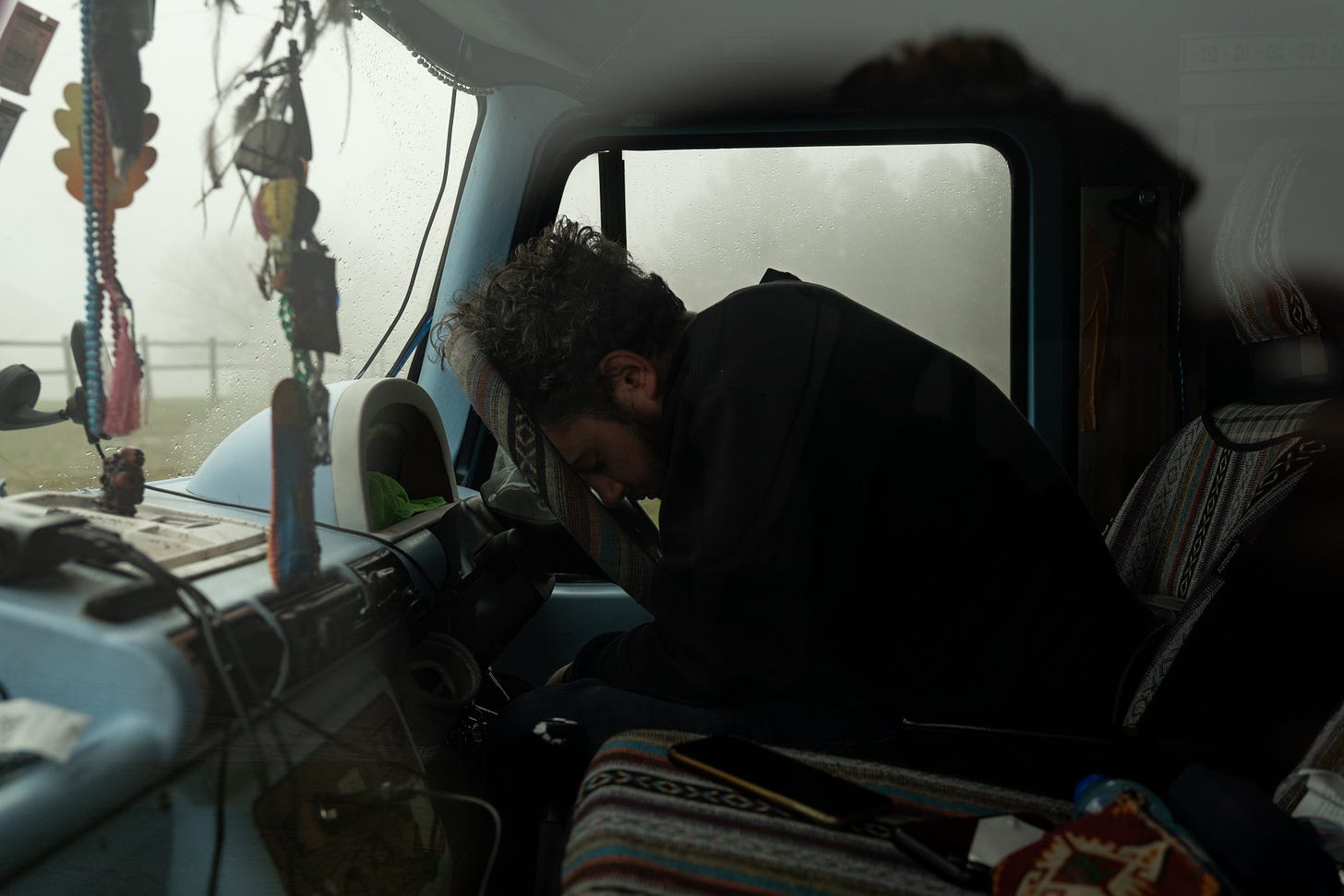
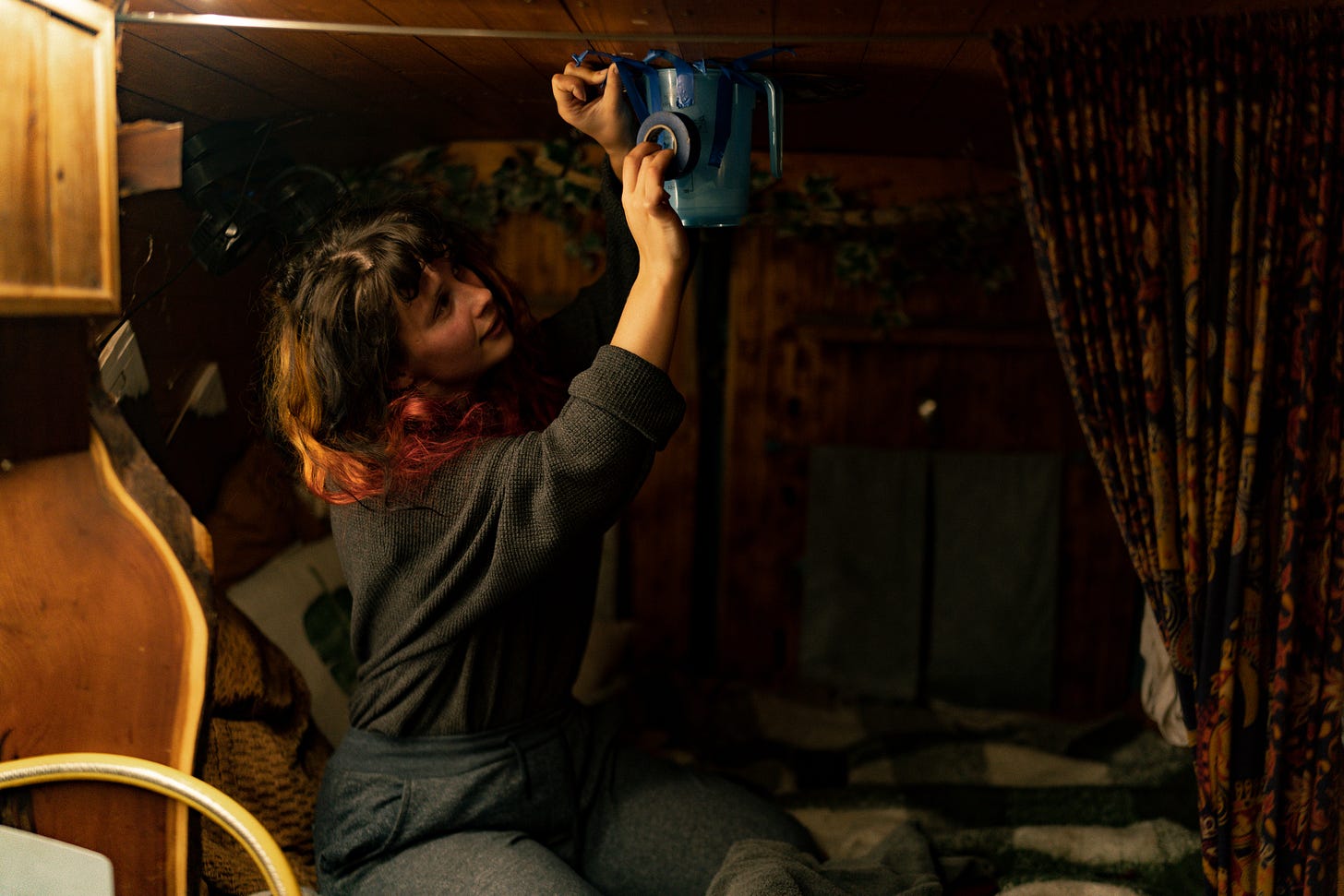
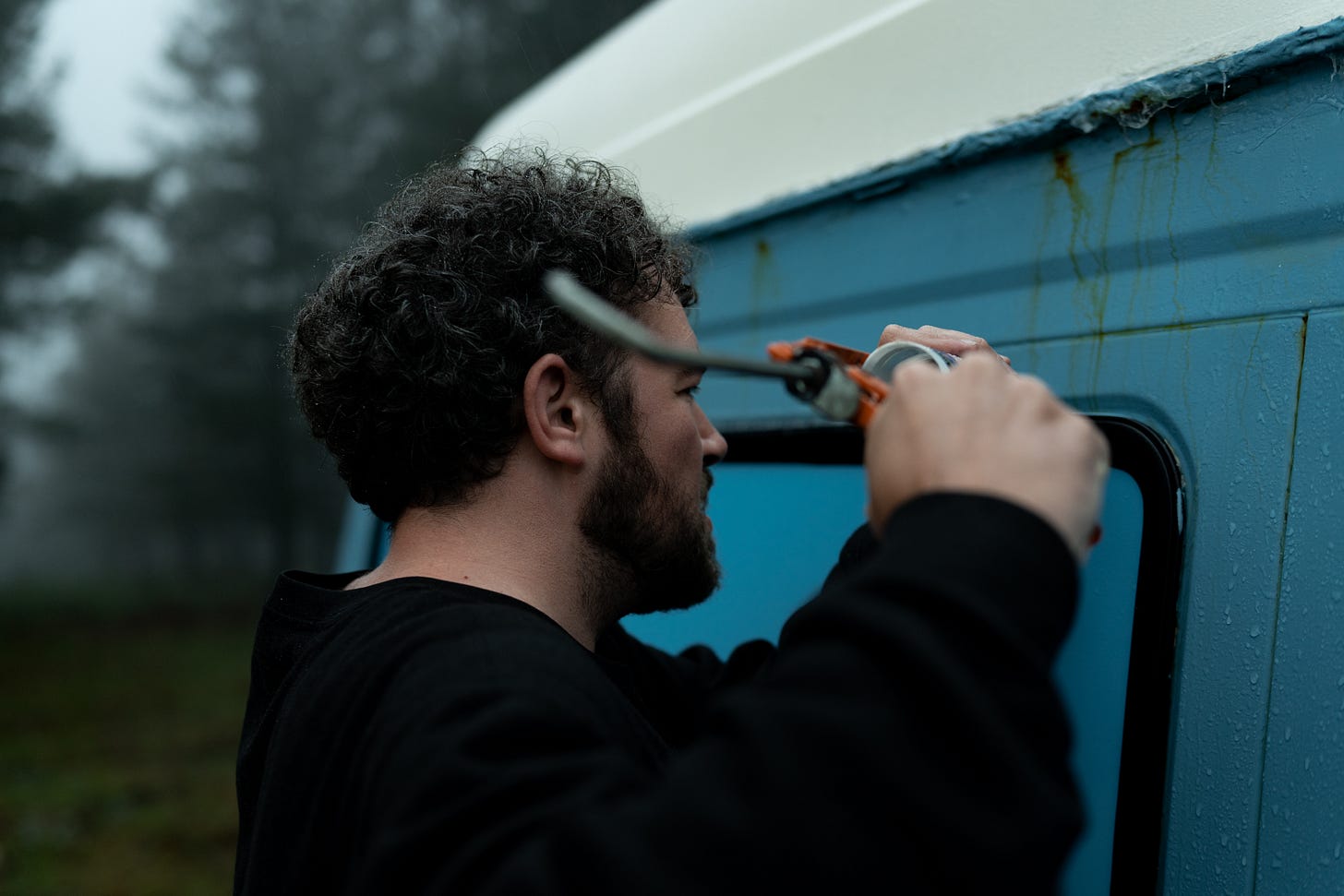
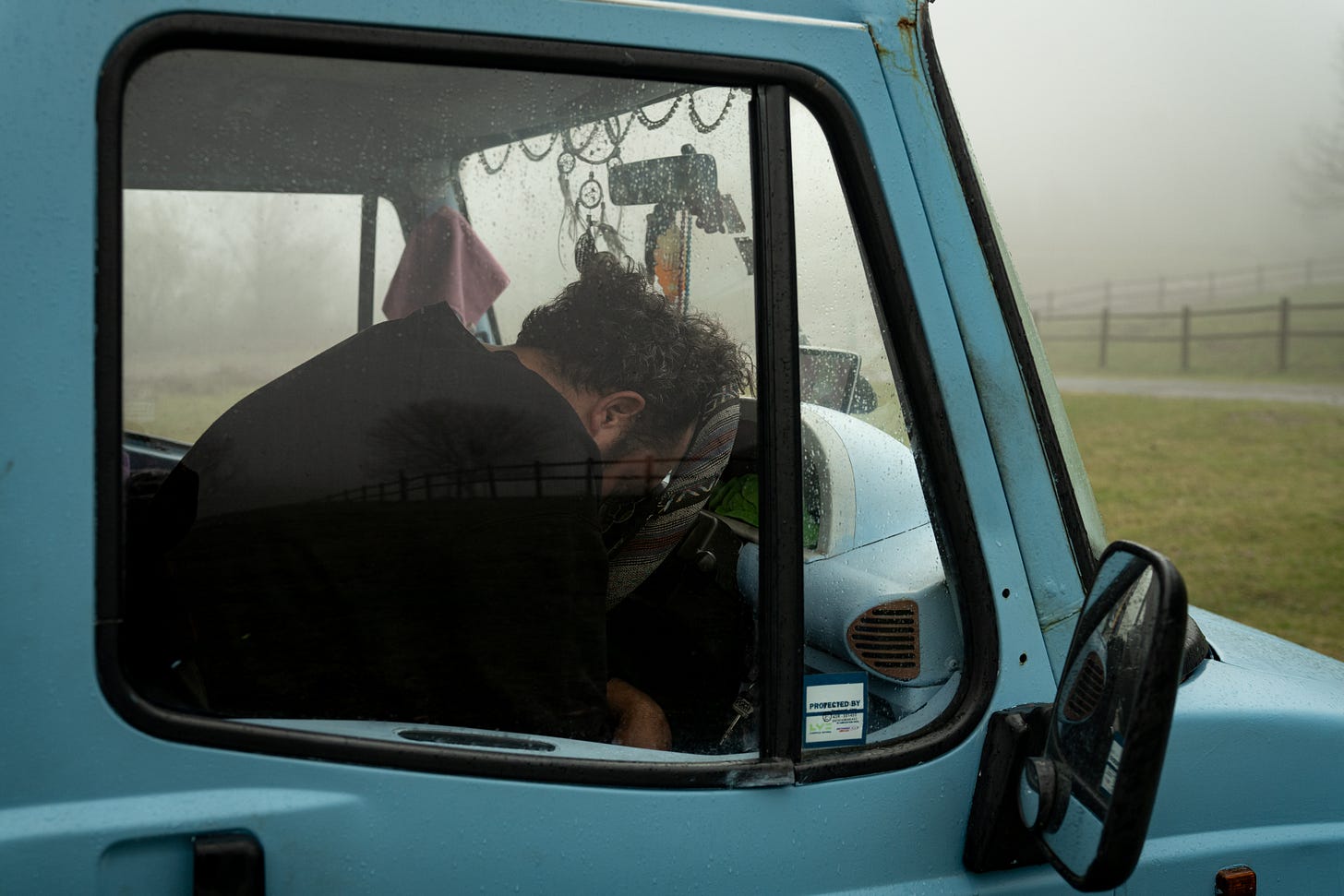
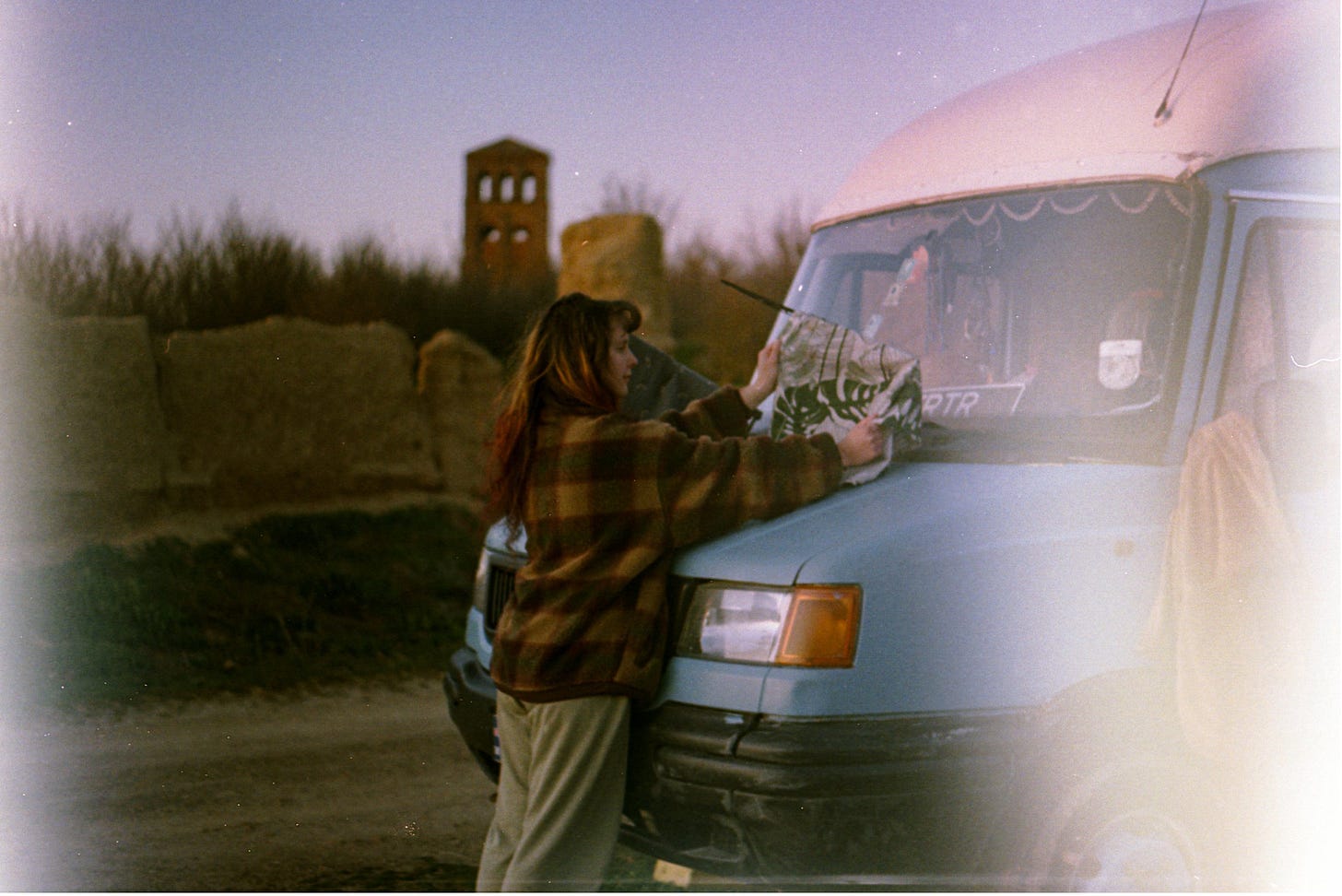
I can relate. I felt wet and miserable reading this, but I enjoyed it much. Real story.
I would argue that the desire to be within the unfamiliar is because there is conditioning that meant you were thrusted into the unfamiliar (trauma) as a child and had to learn to survive. This creates an attachment to wanting to experience the familiar (in this case the unfamiliar) so that you might feel those emotions once more. Because in some weird and twisted way they make you feel alive/are part of your identity of "this is who I am" which makes you feel safe.